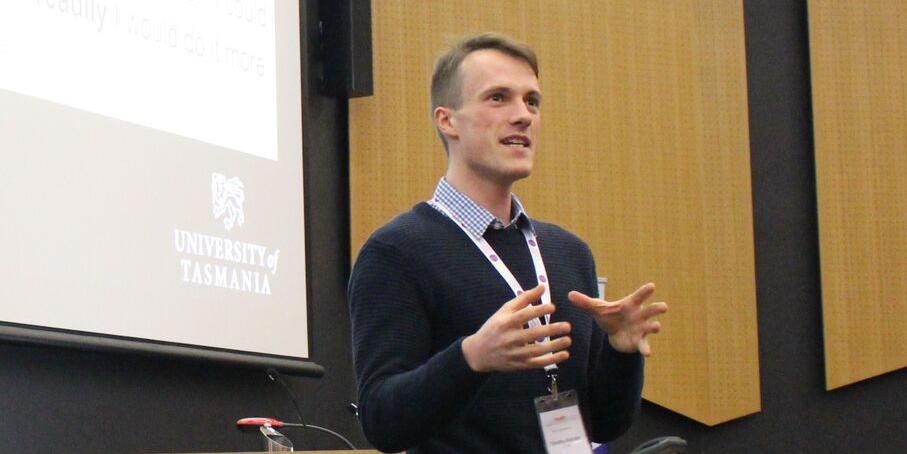Public Health
With the COVID-19 pandemic elevating public health to the forefront of public interest, there has never been a better time to embark on or advance your career in public health and learn how to tackle contemporary and emerging public health challenges.
Our courses will provide you with the tools necessary to make a difference in your community. You’ll learn to practise in a way that leverages the factors affecting health and wellbeing, including social, environmental, cultural, economic, political, and structural issues.
You’ll graduate qualified to lead in the fields of disease prevention, health promotion, health research and evaluation, health policy, environmental health, and health systems.
Course Options
Master of Public Health
2 years min, 8 years max
Online, Hobart CRICOS 098199C
View course details Master of Public Health
Graduate Diploma of Public Health
1 year min, 4 years max
Online, Hobart
View course details Graduate Diploma of Public Health
Graduate Certificate in Public Health
0.5 year min, 2 years max
Online, Hobart
View course details Graduate Certificate in Public Health
Graduate Certificate in Health Protection
Min 1 year, max 3 years
Online
View course details Graduate Certificate in Health Protection
Study to suit your lifestyle and commitments, either on-campus or online.
Learn from leading researchers in the field.
Be empowered to lead change in your community.
Study options
Take a global perspective
In year one of the Master of Public Health, you’ll develop knowledge for a globally recognised qualification by studying topics such as global health solutions, public health intervention practice, health research, and systems thinking.
Develop highly specialised knowledge
In year two of the Master of Public Health, you’ll develop specialised knowledge in the areas of environmental health, noncommunicable disease prevention, communicable disease epidemiology, and health economics. You’ll also have the choice of completing elective coursework units or undertaking an individual research project (subject to approval) which can lead to a PhD.
Choice of pathways
In the final year of the Master of Public Health, you’ll be able to choose from an elective coursework or major research project pathway.
Course breakdown
1
Graduate Certificate in Public Health
50 credit points
Complete the following core units:
- Global Health Systems
- Introduction to Epidemiology
- Introduction to Public Health
- Evaluating Health Interventions
2
Graduate Diploma of Public Health
100 credit points
Complete the requirements for the Graduate Certificate, then study:
- Systems Thinking in Public Health
- Introduction to Biostatistics
Public Health - Intervention Practice
- Health Research Methods
3
Master of Public Health
200 credit points
Complete the requirements for the Graduate Diploma, then study:
- Environmental Health
- Non Communicable Disease Prevention
- Communicable disease epidemiology
- Health Economics
For the elective coursework pathway: choose four elective units out of 14, or;
For the research pathway: study two research major project units combined with one elective coursework unit.
Career outcomes

Passion for health begins at home
It wasn’t until he studied at university that Timothy Kariotis fully gained an understanding of why people from his hometown in Devonport, Tasmania were experiencing poor health.
The healthcare industry is expected to grow by over 15 percent over the next five years.* Career outcomes are focused on fields relating to:
- improving health
- protecting health
- maintaining and raising standards of health and social care
- working with information (health intelligence)
- working in academic public health (teaching and researching)
- leading strategic planning, management, and policy development
- designing and evaluating public health interventions.
*Australian Bureau of Statistics data
Projected number of new healthcare jobs
Five years to 2024
Full-time role share of employment market
In the healthcare industry
Percentage of unfilled vacancies in healthcare
In 2017/18 financial year, up from 34% in previous year
Entry information
Entry requirements
Entry requirements vary across courses. You'll find the requirements on our individual course pages. These can be accessed from Course Options, which is located above on this page.
We encourage you to apply for the courses you most want to study. If you're not eligible to enter your chosen course right now, our admissions team will work with you to find the best pathway option.
Credit for prior learning
The University of Tasmania aims to provide you with credit for approved prior study or equivalent professional experience which exceeds standard entrance requirements for courses. For more information please visit Recognition of Prior Learning.
English language requirements
For those applicants who are nationals of and currently residing in a country where English is not the official language, evidence of an IELTS or TOEFL test must be provided. For more information, please visit International Future Students.